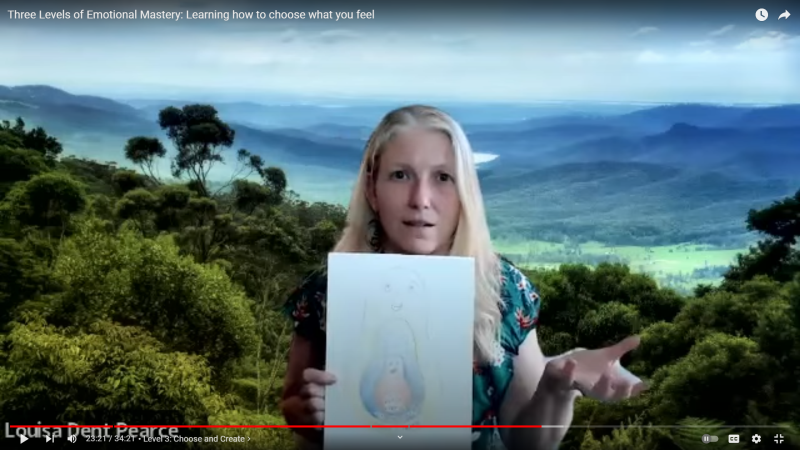Three Levels of Emotional Mastery
- Louisa Dent Pearce

- Sep 8, 2024
- 3 min read
I offer this teaching of “levels” with the awareness that it is most certainly incomplete. The problem with levels is that we only know as much as we know. There are no doubt levels much higher than the ones I could ever conceive of.
I once heard the brilliant spiritual teacher Matt Kahn describe dimensions of consciousness as being like floors of a building. Whichever dimension you are evolved enough to experience, you will be able to look down to the previous levels as though the floors were made of glass. But if you look up beyond your current capacity, you will only see a solid ceiling. These dimensions will remain nothing but a concept for you, until you are able to actually find the staircase or elevator and experience that floor for yourself.
So if you are curious about just how much control you can have over your emotional state and hence your reality, watch the video below or read on…
Level 1: React and Repress
Our most primitive and primal emotional expression is “reaction”. Babies and children display this level clearly, releasing unabashed tears, screams or laughter (the affect) in response to caregivers or environmental stimuli. Behind the affect is intense, raw emotion keenly felt in the body - which is why babies make such a big deal out of everything.
In early development, humans learn to repress feelings. Studies on attachment trauma have shown that infants who are neglected learn to repress or dissociate from distressing emotions if their needs are not being met. It is a survival adaptation, which helps us get through painful experiences which would be too impossible to process or resolve at such a young age.
Because it’s a survival skill, repression can become an ingrained habit into adulthood, warping our personality so that we do not truly feel the full spectrum of our emotions. Usually we follow our parents’ lead, so that whatever emotions were “not okay’ when we were growing up, those same emotions are now unconsciously repressed in your body as an adult.
The key word for this level is “unconscious” – we do not understand what we are doing at this level, nor do we have any control over it. Yet there is always a part of us which seeks to know, to expand and to grow, and this part of us will gradually see your patterns and blind-spots, preparing you to be ready for level 2. The lesson of this level is to learn “self-awareness”.
Level 2: Feel/Express and Accept
At this level, you become conscious of your emotional “inner world” and you take responsibility for it by feeling, expressing and processing your emotions in your body. This is not the same as reacting emotionally, which is a knee-jerk way for you to try and control the situation and avoid painful feelings. In Level 2, you are embracing and accepting how you feel.
This sounds rosy but it’s usually messy, involving journals, tears, broken things, and perhaps therapy. There are many ways to do it, but one sign that you are embodying and processing your emotions is that it feels cathartic. You judge yourself less and less, and you allow your feelings to come and go like the weather.
The lesson of this level is “self-love”.
Level 3: Choose and Create
At this level, you have got the hang of feeling and accepting your emotions, and now a miraculous thing begins to happen in the precious time and space you allow for your process; you begin to realise that you can actually change how you feel. You do indeed have that power.
And so begins your lesson of level three: learning “self-agency”. Using your own unique methods that you have developing in Levels 1 and 2, you find that you can transmute negative feelings into positive ones, and that if you act from this place of positivity, you will indeed affect your reality in positive ways. Thus you are not only choosing your emotional frequency, you are consciously creating your reality, which is always a by-product of your electro-magnetic thoughts, desires and emotions.
Conclusion
You are continuously learning and evolving. Wherever you are on the spectrum of emotional mastery as presented, hold no judgement for yourself; instead, cultivate curiosity about all of your experiences and enjoy the process of getting to know yourself as a precious and perfect aspect of Creator.




Comments